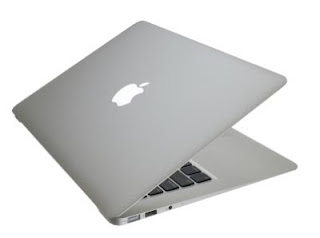It is the perception of most of the individuals that Mac PCs are safe from malware and other unpleasant things that are common in the Window’s world, which makes to ask if, Mac really need antivirus. The fact is that there is no computer on the globe which is safe from adware, malware, spyware, Trojan, backdoors, malware, and other dubious applications.
The main distinction between Mac PCs and Windows is that no effective malware created for OS X which has ever been successful, and that does not mean that it's difficult to make a malware that could bring down a Mac; but just more complex than Windows, because of the OS X and its security design.
The Mac OS contains applications, which may continue to have security problems that can allow some attacks but it's just that, the strike is not likely to come from a virus. The assumption of Mac customers is that since there are currently no known viruses focusing on Mac, it's hence safe from strikes.
So as many people may be thinking that if Mac PCs do not get virus then there is nothing to defend them from? Well this line of consideration is reinforced by one of two arguments: Mac PCs are a small portion of the overall computer industry that cyber-criminals do not blunder with them, or Mac OS X is resistant to harmful application.
Mac malware
This began way returning to the 1980's when malware was propagated by different people who were using same floppy disk in their computers. Virus authors continued to progress and designed a worm known as AutoStart 9805 in 1998 that propagate from Asia to the rest of the world. Leap-A became the first malware to contaminate Mac OS X in 2006, and used the iChat im system to propagate. Other viruses and Trojan were also deployed over the decades, but they were with smaller impact on Mac PCs as compared to the overall computer inhabitants, and this did not make big news outside of the technical weblogs.
Mac PCs do indeed signify a minority share of the laptop and desktop computer industry. According to Gartner, its business in the U.S in the year 2011 was just 11%, and approximately 5% or lower worldwide. For decades, Mac users have stuck to this incorrect feeling of security, supposing that they are too few for online scammers to go after them. But we should also point out that this discussion does not declare that Mac PCs are impassable but just, the chance of a strike is what is low since they do not have objectives for one.
In 2011, Mac malware began to improve very fast. The MacDefender strikes were used to entice antivirus offer to attract Mac customers into offering their credit card numbers. The cover and style of the strike progressed eventually, displaying an improved complexity by the cyber-criminals. These malware designers are using methods which they have perfected on Windows customers for decades.
Flashback malware alone has contaminated over 600,000 Mac PCs this year. And what exactly is most stunning about this particular strike is how nimble the malware seems to be.
At first it presented as a Flash installer (hence the name) and attacks Mac PCs as a Troja horse. It has since progressed in personality and installs itself with a drive-by just downloading. Cyber-criminals are really placing important persistence into focusing on Mac entrepreneurs.
The second discussion against antivirus for Mac depends on Mac OS X being resistant. Mac OS X certainly has had less malware strikes than Windows over the decades. However, as it is known, there really is no such thing that a computer cannot be contaminated by malware – unless it is not linked to the internet.
While the Apple company usually up-dates to stop known malware, there is often an important lag time between a malware strike and when they launch a fix. And because the recognized impenetrability of Mac OS X is a key marketing element, the apple company is hardly ever clear about the threats Mac entrepreneurs face or the ways they can secure themselves.
We should also discuss that in order to enjoy full benefits of security fixes the apple company provides, must run the application up-dates carefully. An amazing wide range of Mac users and computer owners generally do not do that.
So the big question here should be, does Mac need antivirus software? Obviously it’s a decision individuals will have to make for themselves. This is because antivirus applications don't just shield a computer against known viruses but also consist of anti-phishing, anti-adware, anti-spyware, and other resources that can keep Mac from choosing up trash as it is connected in the internet.
Can you ask yourself is how often do you use safety bags in your car? I am wondering (and hoping) the response is: not often, almost never. Airbags only set up in a car incident, but they are always ready every single time you get into your car and that is how anti - virus applications for Mac works– you do not need it, right up until the time that you seriously do need it.
So at any time computer is linked to the internet they are exposed to a wide range of threats, and with antivirus security, there is a satisfaction that Mac will be secured from anything it may experience.















0 comments:
Post a Comment